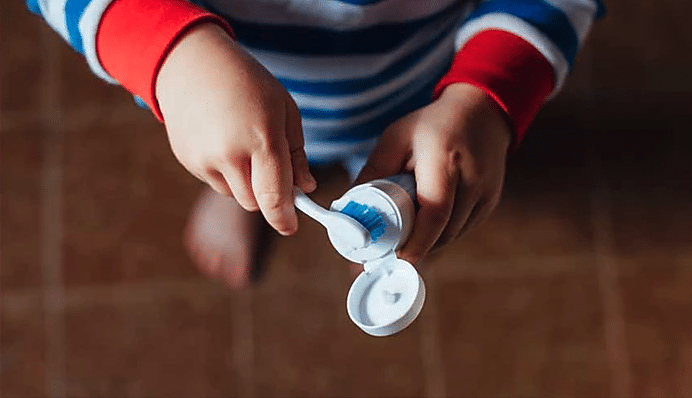You know that brushing your teeth is important. But did you know that you might be making mistakes that can cause more harm than good?
Brushing mistakes can actually cause problems like gum recession, tooth sensitivity, and weakened tooth enamel. Check out our list of common brushing mistakes:
- Keeping Your Toothbrush Too Long
- The American Dental Association (ADA) recommends that you change to a new toothbrush every 3-4 months. After about 3 months, the bristles of your teeth start to wear and do not clean as well and can irritate your gums. Also if you’re sick, make sure you change your toothbrush.
- Rinsing with Water After Brushing
- Many people want to rinse the toothpaste out of their mouths with water but when you rinse it out, you also rinse away the fluoride that is meant to strengthen your teeth. So, instead of rinsing, just try to spit out as much as possible.
- Not Storing Your Toothbrush Correctly
- The CDC offers recommendations that include how to properly care for your toothbrush. It is best to thoroughly rinse your toothbrush after use and store it uncovered and upright to dry.
- Not Flossing
- Your teeth have five surfaces, three surfaces that you can brush, and two in-between surfaces that your toothbrush can never reach. If you don’t include floss into your cleaning routine, you risk leaving harmful bacteria behind that can cause cavities and gum disease.
- Brushing Too Hard
- Proper technique is important because if you are brushing back and forth in a scrubbing motion, you could be at risk for gum recession and tooth wear. One great way to know if you are brushing too hard is to check for bristles that look flattened or frayed. If they are, you’re brushing too hard. The ADA offers brushing tips here.
6. Using a Medium or Firm Toothbrush
- You should ALWAYS be using a SOFT toothbrush ONLY! (Can you tell that this is an important one?) Medium and firm bristles are not only too hard and can harm your gums, causing a recession, but the bristles are not flexible enough to clean properly. A soft toothbrush moves more easily between your teeth and under your gums to remove bacteria.
7. Not Brushing Your Tongue
Your tongue has a rough surface that can house the same harmful bacteria that settles in and around your teeth and gums. If that bacteria sits on your tongue, it is the leading cause of bad breath. To eliminate that odor-causing bacteria, simply brush your tongue each time you brush your teeth.
8. Brushing Right After Eating/Drinking
- Contrary to the old saying of ‘brushing after every meal,’ dental professionals now recommend that you wait 30 minutes to brush after you eat or drink. This is because when you eat, your own saliva pH drops from the normal neutral level of 7 to an acid level of 4.5 in merely the first 5 minutes of your meal. It takes 30 minutes after eating for your own saliva to go back to normal. Why is this important? It is because if you brush within the first 30 minutes, you are essentially brushing acidic saliva all over your teeth, which could cause enamel erosion.
If you have questions about brushing, our dentists and hygienists here at Capozzi Dental are always happy to answer questions and offer recommendations for you to get the best out of your brushing! Call our office at 717-938-4646.



